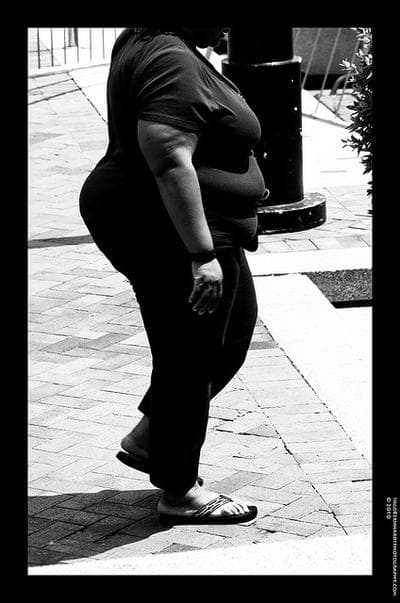Advertisement
Why Are 4 Out Of 5 Black Women Obese, Overweight?

The causes of this alarming obesity rate are various and complex and range from genes and diet to socioeconomic status and the environment, according to Julie Palmer, a senior epidemiologist at Boston University's Slone Epidemiology Center who has coordinated the Black Women's Health Study since 1995. In the BU piece, Palmer details some of these causes and potential fixes:
On Diet
"...when the women were asked how often they ate out and what type of fast food they chose—burgers, pizza, Mexican, Chinese, fried chicken, or fried fish—those who frequently chose the first option had the most consequences. “We found that eating burgers from fast food or other restaurants definitely increased risk for obesity,”
she says. “This was after controlling for soft drinks and after controlling for total fat. There’s something about red meat; we don’t know exactly what it is. And then there’s something about eating that type of meal and everything that goes with it. It was clearly worse than eating the fried fish, fried chicken, or the pizza.”
Palmer published their findings in biannual newsletters sent to study participants, with the recommendation that they substitute diet soda or water for regular soda and order pizza or Mexican, which has more nutrients and fewer calories than burgers. “We’re trying to identify things that people can actually do,” she says. “Because you can’t just say, ‘Lose weight,’ or, ‘Don’t eat so much.’ That’s really hard to do.”
On Motherhood
"Childbearing also proved a factor in weight gain. In a 2003 paper published in Nature, Palmer and her colleagues reported that African American women who have children young, are overweight at the time of pregnancy, or gain an excess amount of weight during pregnancy have a higher prevalence of obesity compared to white women.
And while they don’t have any results yet, the BWHS team is trying to learn if breast-feeding helps a woman “reset her metabolism” to decrease weight gain following pregnancy. The percentage of black infants who are breast-fed has shot up markedly in recent years, but it still lags compared to other groups. According to the CDC, 65 percent of black infants were breast-fed compared to 80 percent of Mexican American and 79 percent of white infants in 2005 and 2006. Palmer hopes her group’s research will encourage more black women to breast-feed and persuade policy makers to pass legislation facilitating breast-feeding in the workplace."
On Discrimination
"Psychological and social factors also have an impact. “Women who report more experiences of racism have been shown to be more likely to become obese,” Palmer says. About 55 percent of study participants reported experiencing discrimination at work, according to a July 2012 BWHS newsletter. Palmer also found that participants who live in disadvantaged neighborhoods—where grocery stores are scarce, parks and sidewalks aren’t maintained, or crime is rampant—often gained weight or were obese."
The Bottom Line
'...children everywhere need to be taught healthy eating habits. Cities must clean up parks and quash violence to encourage physical activity. And urban planners should design more walker-friendly neighborhoods.
“We need to fund more small-scale or local-level efforts to help people make these changes in their lives,” Palmer says.'
This program aired on November 29, 2012. The audio for this program is not available.
